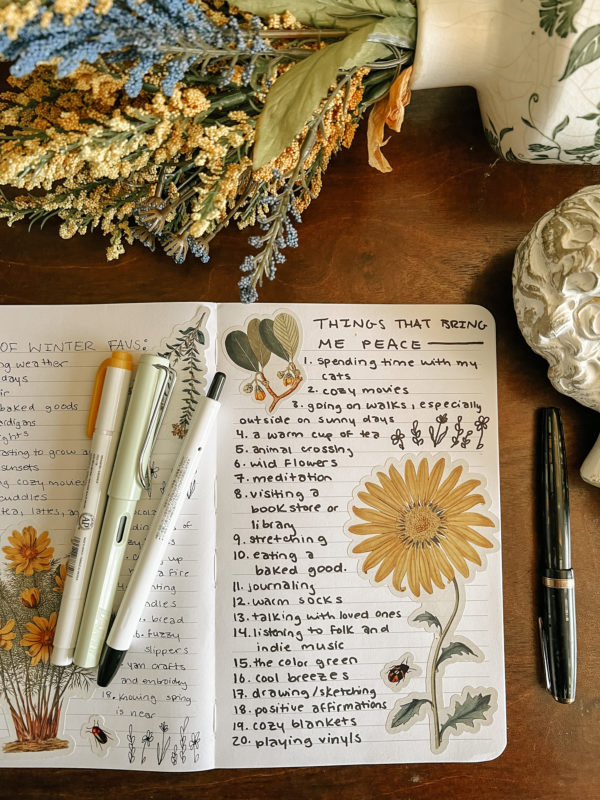Hi, everyone! We live in an age where we are constantly being bombarded by people and companies who claim to know the secret to finding peace. I don’t know about you, but I often walk away from those things feeling less peaceful, not more. Part of the problem is there isn’t any one solution to finding peace. It’s such an individual journey. I don’t claim to have all the answers, but I do want to give you my personal tips on how to find peace. The important thing is to take what works for you and leave behind what doesn’t.
A Switch To Intentional Living
The first thing to note about peace is that it involves intention. For many of us, it is easier to stress than it is to be at peace. I’ve had to learn to be intentional about cultivating peace in my daily life. It doesn’t come naturally to me. I have to choose each day to take steps to battle stress and slow down instead of just going through the motions.
Recently, I started paying more attention to intentional living as a concept. One of its key concepts is the idea we have some control over our lives. I think sometimes we have the tendency to wait for good things to fall into our laps. However, good things often require work to attain them. You don’t have to wait to see what life throws at you. If peace eludes you, it might be time to be more intentional about cultivating it.
Figure Out What You Can Control
This is a tip I see a lot when it comes to battling anxiety. I do think it has its place, but I also think it’s important to note this isn’t always helpful. Sometimes you will be faced with things you can’t control. Sure, you can control how you respond to a situation. However, this doesn’t replace the fact sometimes things honestly just stink. Too often I see this presented as “completely ignore what you can’t control, and get over it already.” This isn’t helpful advice for most of us. I think a better way to look at this tip is “don’t let what you can’t control, control you.”
It’s okay to feel your emotions, including the negative ones like stress and unrest. But it’s important for us to not settle in those emotions. That’s what I think this piece of advice is truly getting at.
Pay Attention To What Makes You Feel Truly At Peace
Maybe it’s starting your day with yoga or watching your favorite movie. It could be spending time with your loved ones or taking your pet on a walk. An important thing to note here is I’m talking about things that help foster long-term peace. Putting off a project or ignoring your bills might feel good in the moment, but it probably makes you more stressed down the road. Focus on finding things you can do alongside necessary stressors rather than in avoidance of them. The goal is to make these things manageable not to avoid them until they are overwhelming.
I recommend making a list of some things you find peaceful and trying to do at least 30 minutes of them each day. For example, my list includes things like doodling in my sketchbook, playing with my cats, and going for walks. Your list might look completely different from mine, and that’s okay. You also might not have time to do these activities every day, and that’s okay too. Making time when you can is a good first step.
Get Help If You Need It
This tip has two meanings. The first is to surround yourself with a good support system. It can be so helpful to have friends who are willing to listen or help you work through your problems. This can help us put things into perspective or process our feelings, both of which can help foster peace. Just remember friendships shouldn’t be one-sided. It’s just as important to support your friends as it is to be supported.
The second meaning of this tip is a bit of a disclaimer. There is a huge difference between everyday stress or situational anxiety and clinical anxiety. If you think you may be dealing with a form of clinical anxiety, please see your doctor or a mental health specialist. This post is in no way medical advice or proper treatment for clinical mental health struggles. You deserve to prioritize your mental well-being just as much as your physical well-being. Please don’t be afraid to seek professional help if you need it.
What helps you feel at peace?
Thank You For Reading,
Elliot J. West


Leave a Reply